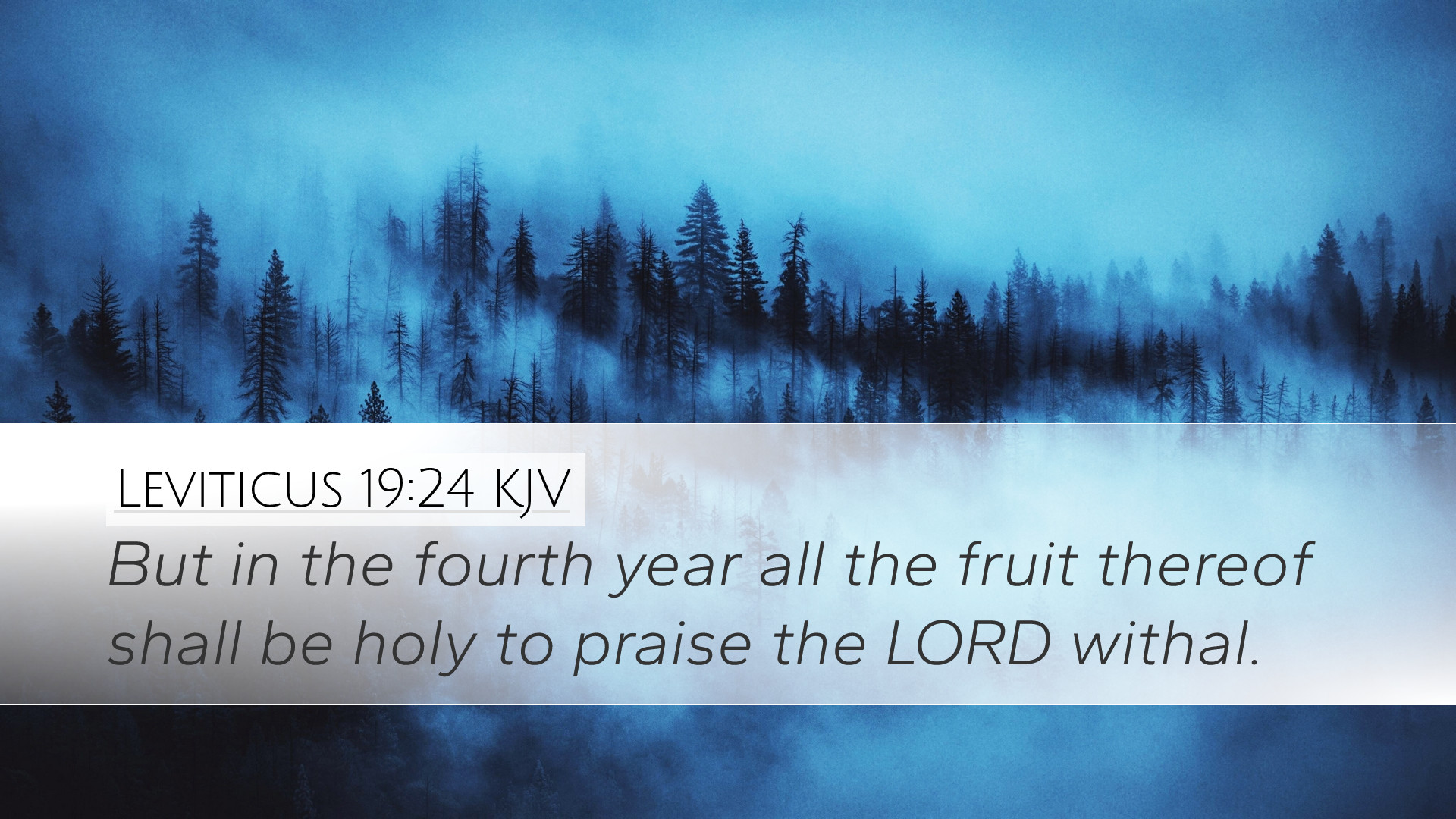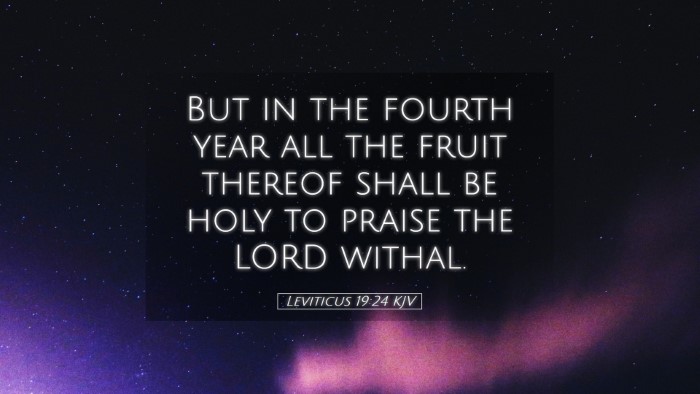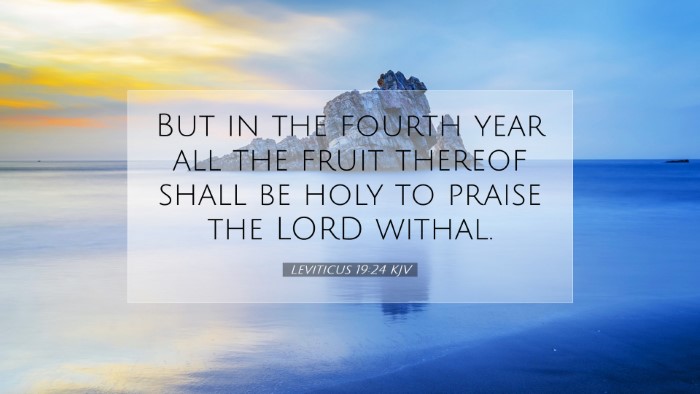Leviticus 19:24 Commentary
Leviticus 19:24 states:
"But in the fourth year all its fruit shall be holy, an offering of praise to the Lord."
Key Themes and Insights
This verse points to the principles of holiness and consecration in relation to agricultural practices. It emphasizes the call to recognize God's ownership over the land and its produce, illustrating broader spiritual truths that resonate with both ancient Israel and contemporary believers.
- Divine Ownership: The fruit grown is not merely for personal gain but is consecrated for God's honor.
- Holiness: The fourth year’s produce being deemed holy signifies that all earthly possessions should reflect one's relationship with God.
- Offering of Praise: The act of bringing the first fruits to God is a form of worship and gratitude.
Commentary by Matthew Henry
Matthew Henry elaborates on the importance of the timeframe established for the fruit-bearing trees. He focuses on the significance of dedicating the fruit to God, interpreting this as an opportunity for worship rather than mere compliance with the Law. He notes that this practice serves as a reflection of gratitude towards God for His provision.
Henry highlights that this command not only shapes agricultural practices but also shapes the heart of the worshiper. The act of consecrating the fruit is a reminder that all blessings come from God and should be returned to Him as a sign of reverence and thanksgiving.
Commentary by Albert Barnes
Albert Barnes presents the argument that the requirement to offer the first fruits in the fourth year has both practical and spiritual ramifications. He suggests that the first three years of the trees’ fruit-bearing period represent a time of growth and preparation, culminating in a significant offering in the fourth year.
Barnes emphasizes that such regulations help the Israelites cultivate a mindset of gratitude and reflection on God’s provision, insisting that their bounty is a direct result of God's blessing. The offering represents acknowledgment of God’s sovereignty over their lives and lands.
Commentary by Adam Clarke
Adam Clarke offers insight into the background of this commandment, discussing how it relates to the overall holiness code found in Leviticus. He explains that the instruction for the fruit to be holy underscores the Israelites' call to be a separate nation dedicated unto God.
Clarke also reflects on the implications this command holds for spiritual disciplines amongst believers. He suggests that setting aside the best fruit symbolizes a heart directed towards God, emphasizing not merely the act but the attitude behind the offering.
Theological Reflections
When examining Leviticus 19:24, one can derive several theological reflections applicable across generations:
- Generational Consistency: God's principles remain unchanged. The act of offering one's increase can be seen as a continuous spiritual discipline across both Old and New Testament communities.
- Christian Stewardship: Just as ancient Israelites dedicated their fruits to God following instructions, modern believers are called to steward their resources in a way that honors God.
- Worshipful Attitude: The intention behind thank offerings fosters a heart of gratitude, which is essential in maintaining a vibrant relationship with God.
Conclusion
Leviticus 19:24 offers profound insights into the nature of holiness, gratitude, and the recognition of God as the giver of all good things. It serves as a worthy reminder for pastors, students, theologians, and Bible scholars that every aspect of life, including our material possessions, is a reflection of our relationship with the Divine. The significance of setting aside the first fruits for God demonstrates a heart posture rooted in worship, reminding us that our lives should be a continuous offering to the Lord.


